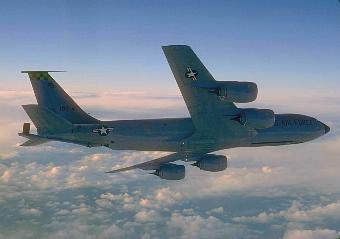WASHINGTON -- In early August, Seattle-based Boeing, the nation's second-largest weapons manufacturer, extended invitations to several East Coast-based online journalists to ride on a lavish Boeing corporate jet to Everett, Wash., to tour the company's 767 airplane factory. Boeing's aim: to win some good-will from a relatively neglected slice of the media as the company vies for one of the biggest and most important military contracts in decades. In coming months, perhaps as early as December, the U.S. Air Force will decide between Boeing and a partnership of Los Angeles-based Northrop Grumman and the European firm EADS for a $40-billion purchase of 179 aerial refueling tankers, the first installment on a buy that could total 500 airplanes worth more than $100 billion. Boeing is touting the 767 as a nimbler, more efficient solution; Northrop highlights its Airbus 330's greater range and payload. But both aircraft are essentially similar to the existing KC-135 in that they're big, based on commercial airliners and piloted by human beings. Tankers are vital to the U.S. military, which uses them to extend the range of fighters, bombers and transport aircraft so they can reach far-flung battlefields. Without tankers, most of the nation's 10,000 combat aircraft would be stuck in the continental United States. The current KC-135 tanker fleet averages around 40 years old, and many in Congress, the Air Force and industry say that's too old. But it's unclear how important calendar age is in determining a tanker's lifespan.
As Air Force Tanker Competition Heats Up, Robotic Solution Gets Short Shrift

